afterLoad (456.41KB) (486μs)
afterInitialise (1.28MB) (34.18ms)
afterRoute (869.86KB) (9ms)
beforeRenderComponent com_tags (20.38KB) (266μs)
afterRenderComponent com_tags (1.96MB) (65.06ms)
afterDispatch (28.33KB) (2.73ms)
beforeRenderRawModule mod_articles_category (READ MORE...) (372.12KB) (14.16ms)
Before Access::preloadComponents (all components) (56.7KB) (480μs)
After Access::preloadComponents (all components) (103.05KB) (2.4ms)
Before Access::getAssetRules (id:8 name:com_content) (840B) (18μs)
After Access::getAssetRules (id:8 name:com_content) (7.05KB) (39μs)
afterRenderRawModule mod_articles_category (READ MORE...) (5.08KB) (105ms)
beforeRenderRawModule mod_tags_popular (Search) (4.81KB) (32μs)
afterRenderRawModule mod_tags_popular (Search) (1.77KB) (21.16ms)
beforeRenderRawModule mod_custom (Remember to download Heart Healthy Seniors) (816B) (31μs)
afterRenderRawModule mod_custom (Remember to download Heart Healthy Seniors) (4.86KB) (306μs)
beforeRenderRawModule mod_custom (Get additionel and more detailed knowledge ) (752B) (15μs)
afterRenderRawModule mod_custom (Get additionel and more detailed knowledge ) (1.67KB) (27μs)
beforeRenderRawModule mod_custom (BOOST YOUR IMMUNE DEFENSE) (608B) (10μs)
afterRenderRawModule mod_custom (BOOST YOUR IMMUNE DEFENSE) (928B) (22μs)
beforeRenderRawModule mod_custom (Are you taking supplements) (736B) (9μs)
afterRenderRawModule mod_custom (Are you taking supplements) (1.03KB) (19μs)
beforeRenderRawModule mod_custom (Antiaging) (720B) (9μs)
afterRenderRawModule mod_custom (Antiaging) (1.02KB) (20μs)
beforeRenderRawModule mod_custom (Exercise) (720B) (79μs)
afterRenderRawModule mod_custom (Exercise) (1.02KB) (23μs)
beforeRenderRawModule mod_custom (Check this before you buy a Q10 product) (752B) (9μs)
afterRenderRawModule mod_custom (Check this before you buy a Q10 product) (944B) (28μs)
beforeRenderRawModule mod_custom (Chronic fatigue tied Alan to his bed but Q10 capsules saved him:) (245.53KB) (2.08ms)
afterRenderRawModule mod_custom (Chronic fatigue tied Alan to his bed but Q10 capsules saved him:) (960B) (52μs)
beforeRenderModule mod_custom (Chronic fatigue tied Alan to his bed but Q10 capsules saved him:) (768B) (5μs)
afterRenderModule mod_custom (Chronic fatigue tied Alan to his bed but Q10 capsules saved him:) (1.3KB) (65μs)
beforeRenderRawModule mod_custom (Cholesterol-lowering without side effects:) (368B) (12μs)
afterRenderRawModule mod_custom (Cholesterol-lowering without side effects:) (2.19KB) (25μs)
beforeRenderModule mod_custom (Cholesterol-lowering without side effects:) (752B) (2μs)
afterRenderModule mod_custom (Cholesterol-lowering without side effects:) (1.28KB) (30μs)
beforeRenderModule mod_articles_category (READ MORE...) (21.32KB) (349μs)
afterRenderModule mod_articles_category (READ MORE...) (1.25KB) (45μs)
beforeRenderModule mod_tags_popular (Search) (5.17KB) (13μs)
afterRenderModule mod_tags_popular (Search) (1.27KB) (26μs)
beforeRenderModule mod_custom (Remember to download Heart Healthy Seniors) (1.17KB) (11μs)
afterRenderModule mod_custom (Remember to download Heart Healthy Seniors) (1.3KB) (23μs)
beforeRenderModule mod_custom (Get additionel and more detailed knowledge ) (368B) (9μs)
afterRenderModule mod_custom (Get additionel and more detailed knowledge ) (1.3KB) (21μs)
beforeRenderModule mod_custom (BOOST YOUR IMMUNE DEFENSE) (224B) (9μs)
afterRenderModule mod_custom (BOOST YOUR IMMUNE DEFENSE) (1.28KB) (20μs)
beforeRenderModule mod_custom (Are you taking supplements) (352B) (9μs)
afterRenderModule mod_custom (Are you taking supplements) (1.28KB) (20μs)
beforeRenderModule mod_custom (Antiaging) (336B) (9μs)
afterRenderModule mod_custom (Antiaging) (1.27KB) (20μs)
beforeRenderModule mod_custom (Exercise) (336B) (19μs)
afterRenderModule mod_custom (Exercise) (1.25KB) (25μs)
beforeRenderModule mod_custom (Check this before you buy a Q10 product) (352B) (10μs)
afterRenderModule mod_custom (Check this before you buy a Q10 product) (1.28KB) (21μs)
beforeRenderRawModule mod_menu (Main menu-US) (20.94KB) (598μs)
afterRenderRawModule mod_menu (Main menu-US) (158.16KB) (1.45ms)
beforeRenderModule mod_menu (Main menu-US) (720B) (5μs)
afterRenderModule mod_menu (Main menu-US) (4.36KB) (54μs)
beforeRenderRawModule mod_languages (Sprogskift) (3.44KB) (17μs)
afterRenderRawModule mod_languages (Sprogskift) (26.82KB) (1.61ms)
beforeRenderModule mod_languages (Sprogskift) (720B) (5μs)
afterRenderModule mod_languages (Sprogskift) (5.31KB) (21μs)
beforeRenderRawModule mod_finder () (6.34KB) (11μs)
afterRenderRawModule mod_finder () (214.16KB) (2.02ms)
beforeRenderModule mod_finder () (704B) (5μs)
afterRenderModule mod_finder () (5.79KB) (33μs)
beforeRenderRawModule mod_custom () (6.62KB) (152μs)
afterRenderRawModule mod_custom () (22.66KB) (821μs)
beforeRenderModule mod_custom () (704B) (6μs)
afterRenderModule mod_custom () (1.23KB) (52μs)
beforeRenderRawModule mod_menu (Main menu-US) (5.07KB) (115μs)
afterRenderRawModule mod_menu (Main menu-US) (5.8KB) (762μs)
beforeRenderModule mod_menu (Main menu-US) (720B) (4μs)
afterRenderModule mod_menu (Main menu-US) (1.25KB) (47μs)
beforeRenderRawModule mod_languages (Sprogskift Mobil) (912B) (18μs)
afterRenderRawModule mod_languages (Sprogskift Mobil) (3.89KB) (749μs)
beforeRenderModule mod_languages (Sprogskift Mobil) (720B) (4μs)
afterRenderModule mod_languages (Sprogskift Mobil) (1.27KB) (33μs)
beforeRenderRawModule mod_finder () (2.3KB) (9μs)
afterRenderRawModule mod_finder () (6.29KB) (531μs)
beforeRenderModule mod_finder () (704B) (5μs)
afterRenderModule mod_finder () (1.23KB) (44μs)
beforeRenderRawModule mod_custom () (8.66KB) (174μs)
afterRenderRawModule mod_custom () (904B) (131μs)
beforeRenderModule mod_custom () (704B) (3μs)
afterRenderModule mod_custom () (2.43KB) (24μs)
beforeRenderRawModule mod_custom () (688B) (82μs)
afterRenderRawModule mod_custom () (896B) (97μs)
beforeRenderModule mod_custom () (704B) (2μs)
afterRenderModule mod_custom () (2.71KB) (21μs)
afterRender (394.87KB) (5.11ms)
| 1 x afterRenderRawModule mod_articles_category (READ MORE...) (5.08KB) (38.29%) | 105.08ms |
| 1 x afterRenderComponent com_tags (1.96MB) (23.71%) | 65.06ms |
| 1 x afterInitialise (1.28MB) (12.45%) | 34.18ms |
| 1 x afterRenderRawModule mod_tags_popular (Search) (1.77KB) (7.71%) | 21.16ms |
| 1 x beforeRenderRawModule mod_articles_category (READ MORE...) (372.12KB) (5.16%) | 14.16ms |
| 1 x afterRoute (869.86KB) (3.28%) | 9.00ms |
| 1 x afterRender (394.87KB) (1.86%) | 5.11ms |
| 1 x afterDispatch (28.33KB) (1%) | 2.73ms |
| 1 x After Access::preloadComponents (all components) (103.05KB) (0.88%) | 2.40ms |
| 1 x beforeRenderRawModule mod_custom (Chronic fatigue tied Alan to his bed but Q10 capsules saved him:) (245.53KB) (0.76%) | 2.08ms |
| 1 x afterRenderRawModule mod_finder () (214.16KB) (0.73%) | 2.02ms |
| 1 x afterRenderRawModule mod_languages (Sprogskift) (26.82KB) (0.58%) | 1.61ms |
| 1 x afterRenderRawModule mod_menu (Main menu-US) (158.16KB) (0.53%) | 1.45ms |
| 1 x afterRenderRawModule mod_custom () (22.66KB) (0.3%) | 821μs |
| 1 x afterRenderRawModule mod_menu (Main menu-US) (5.8KB) (0.28%) | 762μs |
| 1 x afterRenderRawModule mod_languages (Sprogskift Mobil) (3.89KB) (0.27%) | 749μs |
| 1 x beforeRenderRawModule mod_menu (Main menu-US) (20.94KB) (0.22%) | 598μs |
| 1 x afterRenderRawModule mod_finder () (6.29KB) (0.19%) | 531μs |
| 1 x afterLoad (456.41KB) (0.18%) | 486μs |
| 1 x Before Access::preloadComponents (all components) (56.7KB) (0.17%) | 480μs |
| 1 x beforeRenderModule mod_articles_category (READ MORE...) (21.32KB) (0.13%) | 349μs |
| 1 x afterRenderRawModule mod_custom (Remember to download Heart Healthy Seniors) (4.86KB) (0.11%) | 306μs |
| 1 x beforeRenderComponent com_tags (20.38KB) (0.1%) | 266μs |
| 1 x beforeRenderRawModule mod_custom () (8.66KB) (0.06%) | 174μs |
| 1 x beforeRenderRawModule mod_custom () (6.62KB) (0.06%) | 152μs |
| 1 x afterRenderRawModule mod_custom () (904B) (0.05%) | 131μs |
| 1 x beforeRenderRawModule mod_menu (Main menu-US) (5.07KB) (0.04%) | 115μs |
| 1 x afterRenderRawModule mod_custom () (896B) (0.04%) | 97μs |
| 1 x beforeRenderRawModule mod_custom () (688B) (0.03%) | 82μs |
| 1 x beforeRenderRawModule mod_custom (Exercise) (720B) (0.03%) | 79μs |
| 1 x afterRenderModule mod_custom (Chronic fatigue tied Alan to his bed but Q10 capsules saved him:) (1.3KB) (0.02%) | 65μs |
| 1 x afterRenderModule mod_menu (Main menu-US) (4.36KB) (0.02%) | 54μs |
| 1 x afterRenderRawModule mod_custom (Chronic fatigue tied Alan to his bed but Q10 capsules saved him:) (960B) (0.02%) | 52μs |
| 1 x afterRenderModule mod_custom () (1.23KB) (0.02%) | 52μs |
| 1 x afterRenderModule mod_menu (Main menu-US) (1.25KB) (0.02%) | 47μs |
| 1 x afterRenderModule mod_articles_category (READ MORE...) (1.25KB) (0.02%) | 45μs |
| 1 x afterRenderModule mod_finder () (1.23KB) (0.02%) | 44μs |
| 1 x After Access::getAssetRules (id:8 name:com_content) (7.05KB) (0.01%) | 39μs |
| 1 x afterRenderModule mod_languages (Sprogskift Mobil) (1.27KB) (0.01%) | 33μs |
| 1 x afterRenderModule mod_finder () (5.79KB) (0.01%) | 33μs |
| 1 x beforeRenderRawModule mod_tags_popular (Search) (4.81KB) (0.01%) | 32μs |
| 1 x beforeRenderRawModule mod_custom (Remember to download Heart Healthy Seniors) (816B) (0.01%) | 31μs |
| 1 x afterRenderModule mod_custom (Cholesterol-lowering without side effects:) (1.28KB) (0.01%) | 30μs |
| 1 x afterRenderRawModule mod_custom (Check this before you buy a Q10 product) (944B) (0.01%) | 28μs |
| 1 x afterRenderRawModule mod_custom (Get additionel and more detailed knowledge ) (1.67KB) (0.01%) | 27μs |
| 1 x afterRenderModule mod_tags_popular (Search) (1.27KB) (0.01%) | 26μs |
| 1 x afterRenderRawModule mod_custom (Cholesterol-lowering without side effects:) (2.19KB) (0.01%) | 25μs |
| 1 x afterRenderModule mod_custom (Exercise) (1.25KB) (0.01%) | 25μs |
| 1 x afterRenderModule mod_custom () (2.43KB) (0.01%) | 24μs |
| 1 x afterRenderRawModule mod_custom (Exercise) (1.02KB) (0.01%) | 23μs |
| 1 x afterRenderModule mod_custom (Remember to download Heart Healthy Seniors) (1.3KB) (0.01%) | 23μs |
| 1 x afterRenderRawModule mod_custom (BOOST YOUR IMMUNE DEFENSE) (928B) (0.01%) | 22μs |
| 1 x afterRenderModule mod_custom (Get additionel and more detailed knowledge ) (1.3KB) (0.01%) | 21μs |
| 1 x afterRenderModule mod_custom (Check this before you buy a Q10 product) (1.28KB) (0.01%) | 21μs |
| 1 x afterRenderModule mod_languages (Sprogskift) (5.31KB) (0.01%) | 21μs |
| 1 x afterRenderModule mod_custom () (2.71KB) (0.01%) | 21μs |
| 1 x afterRenderRawModule mod_custom (Antiaging) (1.02KB) (0.01%) | 20μs |
| 1 x afterRenderModule mod_custom (BOOST YOUR IMMUNE DEFENSE) (1.28KB) (0.01%) | 20μs |
| 1 x afterRenderModule mod_custom (Are you taking supplements) (1.28KB) (0.01%) | 20μs |
| 1 x afterRenderModule mod_custom (Antiaging) (1.27KB) (0.01%) | 20μs |
| 1 x afterRenderRawModule mod_custom (Are you taking supplements) (1.03KB) (0.01%) | 19μs |
| 1 x beforeRenderModule mod_custom (Exercise) (336B) (0.01%) | 19μs |
| 1 x Before Access::getAssetRules (id:8 name:com_content) (840B) (0.01%) | 18μs |
| 1 x beforeRenderRawModule mod_languages (Sprogskift Mobil) (912B) (0.01%) | 18μs |
| 1 x beforeRenderRawModule mod_languages (Sprogskift) (3.44KB) (0.01%) | 17μs |
| 1 x beforeRenderRawModule mod_custom (Get additionel and more detailed knowledge ) (752B) (0.01%) | 15μs |
| 1 x beforeRenderModule mod_tags_popular (Search) (5.17KB) (0%) | 13μs |
| 1 x beforeRenderRawModule mod_custom (Cholesterol-lowering without side effects:) (368B) (0%) | 12μs |
| 1 x beforeRenderModule mod_custom (Remember to download Heart Healthy Seniors) (1.17KB) (0%) | 11μs |
| 1 x beforeRenderRawModule mod_finder () (6.34KB) (0%) | 11μs |
| 3 x beforeRenderModule mod_custom () (704B) (0%) | 11μs |
| 1 x beforeRenderModule mod_custom (Check this before you buy a Q10 product) (352B) (0%) | 10μs |
| 2 x beforeRenderModule mod_finder () (704B) (0%) | 10μs |
| 1 x beforeRenderRawModule mod_custom (BOOST YOUR IMMUNE DEFENSE) (608B) (0%) | 10μs |
| 1 x beforeRenderRawModule mod_custom (Are you taking supplements) (736B) (0%) | 9μs |
| 1 x beforeRenderRawModule mod_custom (Antiaging) (720B) (0%) | 9μs |
| 1 x beforeRenderModule mod_custom (Get additionel and more detailed knowledge ) (368B) (0%) | 9μs |
| 1 x beforeRenderModule mod_custom (Are you taking supplements) (352B) (0%) | 9μs |
| 1 x beforeRenderModule mod_custom (Antiaging) (336B) (0%) | 9μs |
| 2 x beforeRenderModule mod_menu (Main menu-US) (720B) (0%) | 9μs |
| 1 x beforeRenderRawModule mod_finder () (2.3KB) (0%) | 9μs |
| 1 x beforeRenderRawModule mod_custom (Check this before you buy a Q10 product) (752B) (0%) | 9μs |
| 1 x beforeRenderModule mod_custom (BOOST YOUR IMMUNE DEFENSE) (224B) (0%) | 9μs |
| 1 x beforeRenderModule mod_custom (Chronic fatigue tied Alan to his bed but Q10 capsules saved him:) (768B) (0%) | 5μs |
| 1 x beforeRenderModule mod_languages (Sprogskift) (720B) (0%) | 5μs |
| 1 x beforeRenderModule mod_languages (Sprogskift Mobil) (720B) (0%) | 4μs |
| 1 x beforeRenderModule mod_custom (Cholesterol-lowering without side effects:) (752B) (0%) | 2μs |
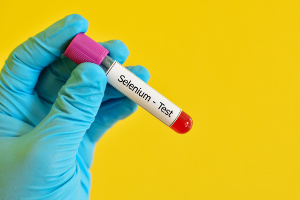 Cholesterol is an essential compound with many different functions. However, it can also turn into a potentially dangerous substance if it oxidizes and is embedded in the blood vessel walls. This oxidative process is what eventually leads to atherosclerosis. The trace element selenium protects against atherosclerosis because of its antioxidant properties and because of other mechanisms, according to a review article published in Biomedicine. This is highly relevant in our part of the world where cardiovascular disease is the leading cause of death, and where selenium deficiency is so widespread.
Cholesterol is an essential compound with many different functions. However, it can also turn into a potentially dangerous substance if it oxidizes and is embedded in the blood vessel walls. This oxidative process is what eventually leads to atherosclerosis. The trace element selenium protects against atherosclerosis because of its antioxidant properties and because of other mechanisms, according to a review article published in Biomedicine. This is highly relevant in our part of the world where cardiovascular disease is the leading cause of death, and where selenium deficiency is so widespread.








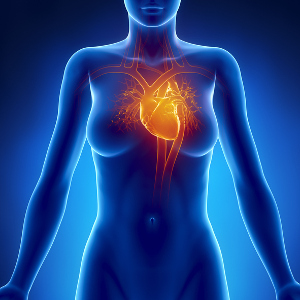 There is a clear link between magnesium intake and the risk of heart diseases and sudden cardiac death in postmenopausal women, according to a study that is published in Journal of Women’s Health. Unfortunately, many women are not diagnosed with heart disease at a sufficiently early stage. It is also a fact that many postmenopausal women take calcium supplements for bone health. However, if they also lack magnesium, which is responsible for the calcium distribution in the body, the calcium supplements may instead increase the risk of coronary atherosclerosis. According to new and earlier research, we must focus a lot more on telling women how important it is to get enough magnesium at all stages of life – not least after menopause.
There is a clear link between magnesium intake and the risk of heart diseases and sudden cardiac death in postmenopausal women, according to a study that is published in Journal of Women’s Health. Unfortunately, many women are not diagnosed with heart disease at a sufficiently early stage. It is also a fact that many postmenopausal women take calcium supplements for bone health. However, if they also lack magnesium, which is responsible for the calcium distribution in the body, the calcium supplements may instead increase the risk of coronary atherosclerosis. According to new and earlier research, we must focus a lot more on telling women how important it is to get enough magnesium at all stages of life – not least after menopause. On a global scale, atherosclerosis is the leading cause of death due to heart failure or stroke. Atherosclerosis causes symptoms such as breathing difficulty, calf pain,
On a global scale, atherosclerosis is the leading cause of death due to heart failure or stroke. Atherosclerosis causes symptoms such as breathing difficulty, calf pain,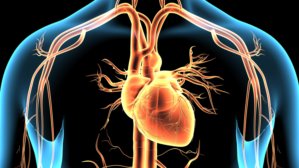 On a global scale, cardiovascular disease and coronary occlusion cause more deaths than any other factor. However, according to a large meta-analysis from Harvard T. H. Chan School of Public Health and Brigham and Women’s Hospital in Boston, USA, people who take fish oil have a lower risk of atherosclerosis and cardiac failure than those, who do not take the supplements. The study also revealed that high-dosed fish oil supplementation delivers more health benefits than the lower doses. Atherosclerosis develops gradually, and millions of people die every year because of this problem, which means that even minor changes such as taking supplements and eating a healthier diet, can improve quality of life and prevent many deaths. So, according to the new study, how much fish oil is needed in order to obtain the optimal cardiovascular effect?
On a global scale, cardiovascular disease and coronary occlusion cause more deaths than any other factor. However, according to a large meta-analysis from Harvard T. H. Chan School of Public Health and Brigham and Women’s Hospital in Boston, USA, people who take fish oil have a lower risk of atherosclerosis and cardiac failure than those, who do not take the supplements. The study also revealed that high-dosed fish oil supplementation delivers more health benefits than the lower doses. Atherosclerosis develops gradually, and millions of people die every year because of this problem, which means that even minor changes such as taking supplements and eating a healthier diet, can improve quality of life and prevent many deaths. So, according to the new study, how much fish oil is needed in order to obtain the optimal cardiovascular effect?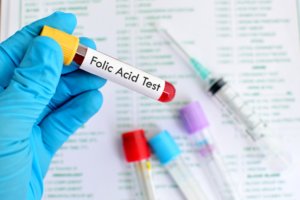
 Heart failure affects millions of people worldwide and many die within the first year of being hospitalized with acute heart failure. However, eating a diet that is rich in the omega-3 fatty acid EPA from oily fish and ALA from plant foods such as walnuts is linked to a lower risk of blood clots and early death, according to a new study that is published in Journal of the American College of Cardiology. You can also read more about another compound that improves cardiac function and survival after acute heart failure.
Heart failure affects millions of people worldwide and many die within the first year of being hospitalized with acute heart failure. However, eating a diet that is rich in the omega-3 fatty acid EPA from oily fish and ALA from plant foods such as walnuts is linked to a lower risk of blood clots and early death, according to a new study that is published in Journal of the American College of Cardiology. You can also read more about another compound that improves cardiac function and survival after acute heart failure.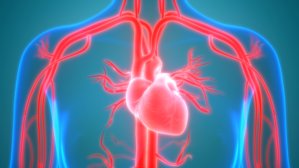 Patients who take glucosamine for their osteoarthritis have a bonus effect: The preparation also lowers the risk of cardiovascular disease, according to a large population study published in the science journal British Medical Journal. Always choose pharmaceutical-grade glucosamine so you are sure to obtain the desired effect.
Patients who take glucosamine for their osteoarthritis have a bonus effect: The preparation also lowers the risk of cardiovascular disease, according to a large population study published in the science journal British Medical Journal. Always choose pharmaceutical-grade glucosamine so you are sure to obtain the desired effect.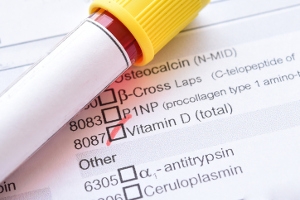 Coronary occlusion is the leading cause of death worldwide. Type 2 diabetes is spreading like a bushfire and this disease is characterized by atherosclerosis and early death. Diet and lifestyle are of vital importance and the same goes for vitamin D. According to a new American study that is published in Nutrients, people whose blood levels of vitamin D are above the official threshold levels have fewer biomarkers of cardiovascular disease, type 2 diabetes, and metabolic syndrome.
Coronary occlusion is the leading cause of death worldwide. Type 2 diabetes is spreading like a bushfire and this disease is characterized by atherosclerosis and early death. Diet and lifestyle are of vital importance and the same goes for vitamin D. According to a new American study that is published in Nutrients, people whose blood levels of vitamin D are above the official threshold levels have fewer biomarkers of cardiovascular disease, type 2 diabetes, and metabolic syndrome.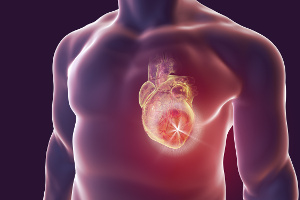 Vitamin D deficiencies are widespread and result in an increased risk of atherosclerosis, heart disease, and hypertension, according to a new study from University of South Australia. Because cardiovascular diseases are the leading cause of death globally, scientists see a huge potential in vitamin D, a nutrient that may be able to save millions of lives.
Vitamin D deficiencies are widespread and result in an increased risk of atherosclerosis, heart disease, and hypertension, according to a new study from University of South Australia. Because cardiovascular diseases are the leading cause of death globally, scientists see a huge potential in vitamin D, a nutrient that may be able to save millions of lives.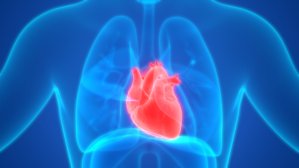 Get lots of sunlight. It is the richest source of vitamin D. Also make sure to take a vitamin D supplement if, for some reason or other, you are unable to get enough sun exposure – and most certainly during the winter period. Studies show that lack of vitamin D may lead to heart failure due to insulin resistance, which is an early stage of diabetes. In other words, having too little vitamin D in your blood may impair the heart’s ability to take up blood sugar and that can cause a morbid enlargement of the cardiac muscle. This was seen in an Indian study that is published in the journal Molecular Nutrition and Food Research. The scientists see vitamin D as having huge potential in the prevention and treatment of cardiac failure plus insulin resistance and diabetes that is spreading like a bushfire.
Get lots of sunlight. It is the richest source of vitamin D. Also make sure to take a vitamin D supplement if, for some reason or other, you are unable to get enough sun exposure – and most certainly during the winter period. Studies show that lack of vitamin D may lead to heart failure due to insulin resistance, which is an early stage of diabetes. In other words, having too little vitamin D in your blood may impair the heart’s ability to take up blood sugar and that can cause a morbid enlargement of the cardiac muscle. This was seen in an Indian study that is published in the journal Molecular Nutrition and Food Research. The scientists see vitamin D as having huge potential in the prevention and treatment of cardiac failure plus insulin resistance and diabetes that is spreading like a bushfire.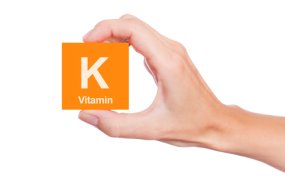 Vitamin K is primarily for its role in helping blood coagulate. Otherwise, the vitamin is heavily underrated. For instance, the bones depend on vitamin K, and those people who consume the greatest amounts of vitamin K have the lowest risk of cardiovascular disease, atherosclerosis, and blood clots. It is important to know the difference between vitamin K1 and K2 and to know how well they get absorbed in the body.
Vitamin K is primarily for its role in helping blood coagulate. Otherwise, the vitamin is heavily underrated. For instance, the bones depend on vitamin K, and those people who consume the greatest amounts of vitamin K have the lowest risk of cardiovascular disease, atherosclerosis, and blood clots. It is important to know the difference between vitamin K1 and K2 and to know how well they get absorbed in the body. Vitamin K occurs in different forms and has a variety of biological functions. A growing number of older people want to be able to manage on their own for as long as possible, which is why a team of scientists from Tufts University, USA, has taken a closer look at the risk factors that are known to impair mobility. The researchers discovered that lack of vitamin K is a serious problem. Other studies suggest that vitamin K deficiencies are quite widespread because older people tend to change their diet habits and use cholesterol-lowering medicine.
Vitamin K occurs in different forms and has a variety of biological functions. A growing number of older people want to be able to manage on their own for as long as possible, which is why a team of scientists from Tufts University, USA, has taken a closer look at the risk factors that are known to impair mobility. The researchers discovered that lack of vitamin K is a serious problem. Other studies suggest that vitamin K deficiencies are quite widespread because older people tend to change their diet habits and use cholesterol-lowering medicine.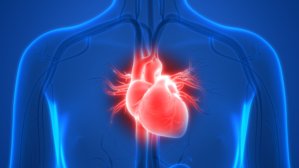 Heart failure is when the heart loses power and is no longer able to deliver blood to the different parts of the body. Typical symptoms are shortness of breath and physical exhaustion. There may also be symptoms like fluid retention, persistent coughing, chest tightness, increased sweating, or cold sensitivity. Chronic heart failure may be caused by different things, and it is a life-threatening condition. However, according to a study that is published in Journal of Clinical Investigation, magnesium supplementation can improve a type of heart failure called diastolic dysfunction. Previous studies have demonstrated that supplements of Q10 can also improve cardiac function in patients with heart failure.
Heart failure is when the heart loses power and is no longer able to deliver blood to the different parts of the body. Typical symptoms are shortness of breath and physical exhaustion. There may also be symptoms like fluid retention, persistent coughing, chest tightness, increased sweating, or cold sensitivity. Chronic heart failure may be caused by different things, and it is a life-threatening condition. However, according to a study that is published in Journal of Clinical Investigation, magnesium supplementation can improve a type of heart failure called diastolic dysfunction. Previous studies have demonstrated that supplements of Q10 can also improve cardiac function in patients with heart failure.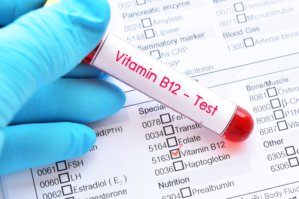 Global heating and the whole climate debate have greatly increased the number of vegans and vegetarians. Their intensions may be good, but what they do not know is that their lifestyle can lead to serious health problems. A Spanish study of vegetarians and vegans has shown that 11% of the study participants had subclinical or clinical vitamin B12 deficiency. Earlier studies supporting this finding. Because the problem is insidious, it is often difficult to see the link between the deficiency and the symptoms caused by anemia or disturbances in the nervous system. The lack of vitamin B12 may also increase the risk of impaired fertility and development disturbances in the fetus. It is therefore a good idea for vegans and vegetarians to take a vitamin B12 supplement.
Global heating and the whole climate debate have greatly increased the number of vegans and vegetarians. Their intensions may be good, but what they do not know is that their lifestyle can lead to serious health problems. A Spanish study of vegetarians and vegans has shown that 11% of the study participants had subclinical or clinical vitamin B12 deficiency. Earlier studies supporting this finding. Because the problem is insidious, it is often difficult to see the link between the deficiency and the symptoms caused by anemia or disturbances in the nervous system. The lack of vitamin B12 may also increase the risk of impaired fertility and development disturbances in the fetus. It is therefore a good idea for vegans and vegetarians to take a vitamin B12 supplement.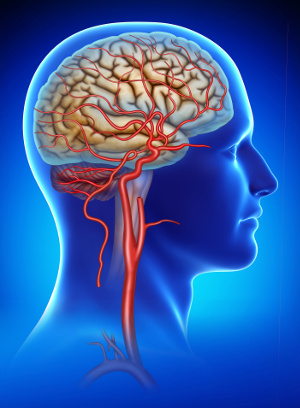
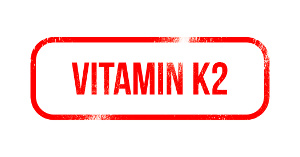 Your birth attest reveals your actual age but your biological age gives a more accurate picture of your health and life expectancy. Our biological age and cardiovascular health are closely connected, with atherosclerosis and arterial stiffness representing a progressive process that eventually leads to the majority of deaths. Nonetheless, you can do a lot yourself by making sure to get sufficient amounts the nutrients that are most vital for good cardiovascular health. In this article, we will look closer at some current studies of vitamin K2, Q10, selenium, and omega-3, all of which are essential nutrients that prevent, each in their own way, atherosclerosis, arterial stiffness, and premature death as a result of having high heart age.
Your birth attest reveals your actual age but your biological age gives a more accurate picture of your health and life expectancy. Our biological age and cardiovascular health are closely connected, with atherosclerosis and arterial stiffness representing a progressive process that eventually leads to the majority of deaths. Nonetheless, you can do a lot yourself by making sure to get sufficient amounts the nutrients that are most vital for good cardiovascular health. In this article, we will look closer at some current studies of vitamin K2, Q10, selenium, and omega-3, all of which are essential nutrients that prevent, each in their own way, atherosclerosis, arterial stiffness, and premature death as a result of having high heart age.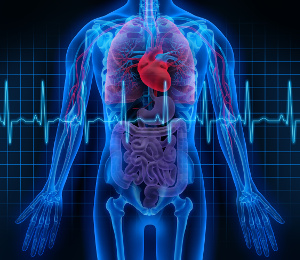 Cardiovascular diseases are widespread and one of the major causes of death. The risk is increased by factors such as ageing, diabetes, and overweight. One of the underlying causes is oxidative stress, which is an imbalance between free radicals and antioxidants. Q10, which is involved in cellular energy turnover, happens to be one of the most powerful antioxidants. According to a review article that is published in the scientific journal Antioxidants, supplementation with Q10 can reduce oxidative stress and cardiovascular mortality. It can also improve quality of life and increase the chances of survival. Generally speaking, Q10 has a huge potential for anyone with a desire to remain healthy, and it is important to choose a supplement with documented quality and bioavailability.
Cardiovascular diseases are widespread and one of the major causes of death. The risk is increased by factors such as ageing, diabetes, and overweight. One of the underlying causes is oxidative stress, which is an imbalance between free radicals and antioxidants. Q10, which is involved in cellular energy turnover, happens to be one of the most powerful antioxidants. According to a review article that is published in the scientific journal Antioxidants, supplementation with Q10 can reduce oxidative stress and cardiovascular mortality. It can also improve quality of life and increase the chances of survival. Generally speaking, Q10 has a huge potential for anyone with a desire to remain healthy, and it is important to choose a supplement with documented quality and bioavailability.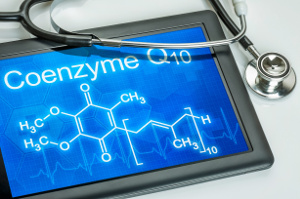 Diabetes damages the circulatory system in a number of ways that are linked to impaired quality of life and early death. A meta-analysis shows that if type 2 diabetics take supplements of Q10 it lowers their risk of cardiovascular disease by reducing levels of total cholesterol and LDL cholesterol. Another positive effect of Q10 is that it serves as a unique antioxidant that counteracts oxidative stress, which is a major cause of atherosclerosis and cardiovascular damage. One of the problems of using cholesterol-lowering statins is that it inhibits the body’s endogenous Q10 synthesis, but this is something one can compensate for. According to Danish research, it is also a good idea to limit your carbohydrate intake and follow the new dietary guidelines that help stabilize blood sugar levels.
Diabetes damages the circulatory system in a number of ways that are linked to impaired quality of life and early death. A meta-analysis shows that if type 2 diabetics take supplements of Q10 it lowers their risk of cardiovascular disease by reducing levels of total cholesterol and LDL cholesterol. Another positive effect of Q10 is that it serves as a unique antioxidant that counteracts oxidative stress, which is a major cause of atherosclerosis and cardiovascular damage. One of the problems of using cholesterol-lowering statins is that it inhibits the body’s endogenous Q10 synthesis, but this is something one can compensate for. According to Danish research, it is also a good idea to limit your carbohydrate intake and follow the new dietary guidelines that help stabilize blood sugar levels. Selenium is a trace element with a number of essential functions. An estimated one billion people worldwide get too little dietary selenium. The problem is mainly a result of nutrient-depleted farmland. Moreover, blood levels of selenium drop drastically in connection with COVID-19 infections, serious illness, and pregnancy because the body has an increased need for the nutrient. Altogether, selenium deficiency increases the risk of complicated COVID-19 infections, autoimmune diseases such as rheumatoid arthritis, Hashimoto’s thyroiditis, preterm delivery, and miscarriage. Supplementation may help optimize blood levels of selenium, which can be relevant for preventing and treating a number of common diseases, according to an article that is published in International Journal of Medical Sciences.
Selenium is a trace element with a number of essential functions. An estimated one billion people worldwide get too little dietary selenium. The problem is mainly a result of nutrient-depleted farmland. Moreover, blood levels of selenium drop drastically in connection with COVID-19 infections, serious illness, and pregnancy because the body has an increased need for the nutrient. Altogether, selenium deficiency increases the risk of complicated COVID-19 infections, autoimmune diseases such as rheumatoid arthritis, Hashimoto’s thyroiditis, preterm delivery, and miscarriage. Supplementation may help optimize blood levels of selenium, which can be relevant for preventing and treating a number of common diseases, according to an article that is published in International Journal of Medical Sciences.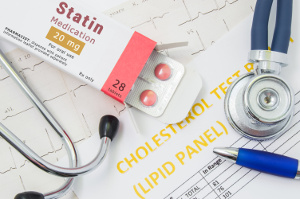 Cholesterol-lowering statins are among some of the most widely sold medical drugs. However, there is growing disagreement about their preventive effect on atherosclerosis and cardiovascular diseases, which are linked to many other factors than cholesterol levels alone. It turns out that statins also block the body’s production of vitamin K2, a nutrient that contributes to removing calcium from the bloodstream. A new study that is published in Medical Sciences concludes that atherosclerosis is more prevalent among statin users than among non-users, regardless of any cardiovascular diseases that have already been diagnosed. In other words, statins actually increase your risk of clogged-up arteries and that contradicts the traditional view. The new study supports earlier research, and it has been known for years that statins also block the endogenous synthesis of coenzyme Q10 and vitamin D, both of which are important for the heart and circulatory system.
Cholesterol-lowering statins are among some of the most widely sold medical drugs. However, there is growing disagreement about their preventive effect on atherosclerosis and cardiovascular diseases, which are linked to many other factors than cholesterol levels alone. It turns out that statins also block the body’s production of vitamin K2, a nutrient that contributes to removing calcium from the bloodstream. A new study that is published in Medical Sciences concludes that atherosclerosis is more prevalent among statin users than among non-users, regardless of any cardiovascular diseases that have already been diagnosed. In other words, statins actually increase your risk of clogged-up arteries and that contradicts the traditional view. The new study supports earlier research, and it has been known for years that statins also block the endogenous synthesis of coenzyme Q10 and vitamin D, both of which are important for the heart and circulatory system.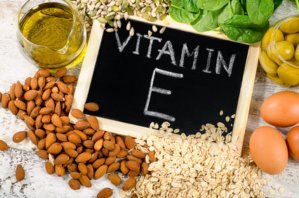
 It is commonly known that fish oil with its high content of the two omega-3 fatty acids EPA and DHA helps prevent atherosclerosis. According to a new international study, it appears to be DHA that has the major effect. This new insight, which has surprised the scientists, is relevant to public health because cardiovascular disease continues to be the leading cause of death.
It is commonly known that fish oil with its high content of the two omega-3 fatty acids EPA and DHA helps prevent atherosclerosis. According to a new international study, it appears to be DHA that has the major effect. This new insight, which has surprised the scientists, is relevant to public health because cardiovascular disease continues to be the leading cause of death.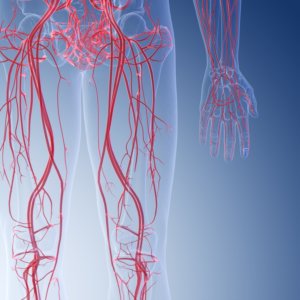 Peripheral circulatory disorders are primarily caused by clogged blood vessels in the extremities. Symptoms typically include walking-induced leg pain, cold hands and feet, or impotence caused by a poor blood supply. According to a new study that is published in the science journal Lipids, people with peripheral circulatory disorders have lower levels of omega-3 in their blood compared with people who do not suffer from these diseases. Omega-3 is believed to have several mechanisms that protect against atherosclerosis. It is also important to make sure to consume omega-3 in the right balance with omega-6.
Peripheral circulatory disorders are primarily caused by clogged blood vessels in the extremities. Symptoms typically include walking-induced leg pain, cold hands and feet, or impotence caused by a poor blood supply. According to a new study that is published in the science journal Lipids, people with peripheral circulatory disorders have lower levels of omega-3 in their blood compared with people who do not suffer from these diseases. Omega-3 is believed to have several mechanisms that protect against atherosclerosis. It is also important to make sure to consume omega-3 in the right balance with omega-6.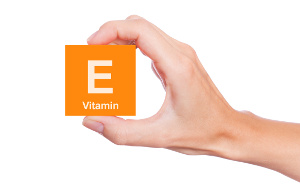 According to an article that is published in StatPearls, vitamin E is a powerful antioxidant that protects against atherosclerosis, cardiovascular disease, and blood clots. Vitamin E is also important for fertility, cell functions, and immune defense. A low-fat diet may result in a vitamin E deficiency. You should also beware that diseases characterized by impaired lipid absorption may increase you need for vitamin E.
According to an article that is published in StatPearls, vitamin E is a powerful antioxidant that protects against atherosclerosis, cardiovascular disease, and blood clots. Vitamin E is also important for fertility, cell functions, and immune defense. A low-fat diet may result in a vitamin E deficiency. You should also beware that diseases characterized by impaired lipid absorption may increase you need for vitamin E.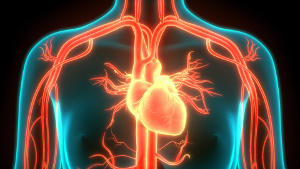 The diet’s content of vitamin K1 and vitamin K2 lowers the risk of atherosclerosis and cardiovascular disease by way of several mechanisms, yet there are relatively few studies that show the relation. In a Danish study that is published in Journal of the American Heart Association, scientists looked closer at how the content of the two forms vitamin K in the diet affect the risk of hospitalization linked to atherosclerosis and cardiovascular disease. So how does vitamin K counteract atherosclerosis and how much of the nutrient do we need?
The diet’s content of vitamin K1 and vitamin K2 lowers the risk of atherosclerosis and cardiovascular disease by way of several mechanisms, yet there are relatively few studies that show the relation. In a Danish study that is published in Journal of the American Heart Association, scientists looked closer at how the content of the two forms vitamin K in the diet affect the risk of hospitalization linked to atherosclerosis and cardiovascular disease. So how does vitamin K counteract atherosclerosis and how much of the nutrient do we need? Vitamin K occurs in various forms and has a number of different biological function. The most recent research focuses on vitamin K2, which is of vital importance to the body’s calcium distribution and therefore has a crucial role in bone building and in the prevention of atherosclerosis. Vitamin K2 is also important for various proteins that are involved in energy turnover, blood sugar regulation, and cancer prevention, according to a review article that is published in BioMed Research International. Actual vitamin K2 deficiencies are considered rare, yet there are studies to suggest that many people lack the nutrient due to altered diet habits and the use of cholesterol-lowering medicine. The question is how much vitamin K2 do we actually need?
Vitamin K occurs in various forms and has a number of different biological function. The most recent research focuses on vitamin K2, which is of vital importance to the body’s calcium distribution and therefore has a crucial role in bone building and in the prevention of atherosclerosis. Vitamin K2 is also important for various proteins that are involved in energy turnover, blood sugar regulation, and cancer prevention, according to a review article that is published in BioMed Research International. Actual vitamin K2 deficiencies are considered rare, yet there are studies to suggest that many people lack the nutrient due to altered diet habits and the use of cholesterol-lowering medicine. The question is how much vitamin K2 do we actually need? It has been known for long that vitamin K2 is important for circulation and bone health. According to a new study, vitamin K2 also lowers the risk of cardiovascular disease in smokers and other nicotine users. This is because vitamin K2 counteracts oxidative stress and atherosclerosis. The scientists stress how important vitamin K2 is for public health, including otherwise unhealthy groups such as smokers.
It has been known for long that vitamin K2 is important for circulation and bone health. According to a new study, vitamin K2 also lowers the risk of cardiovascular disease in smokers and other nicotine users. This is because vitamin K2 counteracts oxidative stress and atherosclerosis. The scientists stress how important vitamin K2 is for public health, including otherwise unhealthy groups such as smokers. "After about one week of taking the Q10 supplement I could feel a huge difference," says 23-year old Alan Piccini, who has been suffering from extreme fatigue and muscle aches ever since he was a child.
"After about one week of taking the Q10 supplement I could feel a huge difference," says 23-year old Alan Piccini, who has been suffering from extreme fatigue and muscle aches ever since he was a child. “Taking capsules with co-enzyme Q10 has freed me of the severe side effects of my cholesterol lowering medicine,” Mrs Franken explains.
“Taking capsules with co-enzyme Q10 has freed me of the severe side effects of my cholesterol lowering medicine,” Mrs Franken explains.